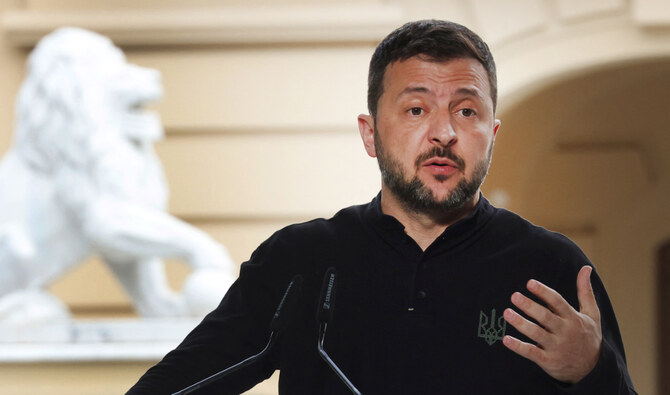President Volodymyr Zelensky said on Wednesday that his “Victory Plan,” intended to bring peace to Ukraine while keeping the country strong an avoiding all “frozen conflicts,” was now complete after much consultation.
Zelensky pledged last month to present his plan to US President Joe Biden, presumably next week when he attends sessions of the UN Security Council and General Assembly.
While providing daily updates on the plan’s preparation, Zelensky has given few clues of the contents, indicating only that it aims to create terms acceptable to Ukraine, now locked in conflict with Russia for more than 2 1/2 years.
“Today, it can be said that our victory plan is fully prepared. All the points, all key focus areas and all necessary detailed additions of the plan have been defined,” Zelensky said in his nightly video address.
“The most important thing is the determination to implement it.
There was, Zelensky said, no alternative to peace, “no freezing of the war or any other manipulations that would simply postpone Russian aggression to another stage.”
On Tuesday, the president said a meeting with top commanders had produced “good and strong content” in military terms, “precisely the kind that can significantly strengthen Ukraine.”
Zelensky has used as the basis for negotiations a peace plan he presented in late 2022 calling for a withdrawal of all Russian troops, the restoration of Ukraine’s post-Soviet borders and a means to bring Russian to account for its invasion.
The plan was the focal point of a “peace summit” hosted by Switzerland in June with participants pledging to convene a second summit later this year. Russia was not invited to the June summit and branded it as meaningless, though Ukraine and its allies say Moscow could attend the next gathering.
Zelensky has rejected any notion of negotiations while Russian troops occupy nearly 20 percent of the country’s territory.
Russia has repeatedly said it is willing to negotiate, but rules out discussions while Ukrainian forces remain in its southern Kursk region an incursion into the area last month.
















